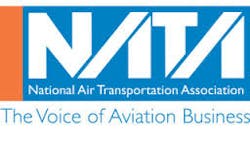NATA Responds to Department of Labor Overtime Proposal
Washington, DC, September 3, 2015 –The National Air Transportation Association (NATA) responded to the Department of Labor proposal to increase the salary threshold at which eligible workers qualify for overtime pay concluding it would negatively impact the aviation business sector. In addition, NATA saw no need to modify the current duties test suggesting any such discussion should be subject to a further rulemaking.
Under current Department of Labor (DOL) regulations – last updated in 2004 – employers are required to pay all eligible employees making $23,660 or less per year time-and-a-half for any hours they work in excess of 40 hours per week. In July the Department issued a proposed rule that would raise that salary threshold to cover all overtime-eligible workers making $50,440 or less per year. In addition, the NPRM is also seeking comments on whether the current duties test is working as intended or needs to be modified.
Responding on behalf of the association, Bill Deere, SVP for Government Affairs suggested, “Given the current economic environment, the nation would greatly benefit from the Administration and Congress moving forward together on the adoption of long-term, permanent, pro-growth tax policies in lieu of this proposed mandate to increase employer costs.” Deere continued, “The feedback NATA received from its members is similar to that of other organizations representing small businesses. The proposal will inhibit the promotion of employees to management positions and return some current managers to hourly status. The end result will be reduced take home pay and loss of benefits. Aviation businesses are by their nature spread throughout the nation and often found in parts of the country where the cost of living is low. These businesses will be especially hard hit by this “one-size-fits-all” proposal.”
The Department of Labor comment period closes on September 4th.
